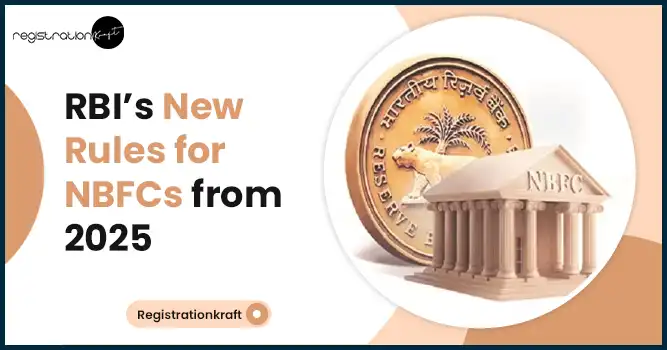RBI’s New Rules for NBFCs from 2025

The rules governing investments in housing finance companies (HFCs) and non-banking finance companies (NBFCs) have been updated by the Reserve Bank of India (RBI). The RBI has made changes to the guidelines for accepting public deposits in the circular, including those that pertain to nominations, repaying public deposits to cover unexpected costs, notifying depositors when their deposits mature, and more.
The minimum liquid asset requirement for deposit-taking HFCs has been increased from 13 percent to 15 percent of public deposits, which is one of the major adjustments.
Apart from this, HFCs are now required to guarantee full asset coverage for public deposits and get an annual ‘investment grade’ rating from credit rating agencies. Importantly, HFCs are not allowed to take in new deposits or renew old ones unless they receive an investment grade credit rating.
In addition, public deposits have to have a maturity period that spans from 12 months to 60 months at most. The RBI’s strict actions underscore how crucial financial stability and regulatory compliance are to the housing financing industry.
RBI stated that it has been decided to issue updated regulations as specified in Part A of Annex, based on a review of the present regulations applicable to HFCs stipulated vide Master Direction – Non-Banking Financial Company – Housing Finance Company (Reserve Bank) Directions, 2021. A few rules that apply to NBFCs have also been reviewed as part of the process; the updated regulations are described in Part B of the Annex. The updated regulations will take effect on January 1, 2025.
What are the new rules for NBFCs?
Let’s take a look at the new rules:
- Small deposits: According to the central bank, if a depositor requests it before the three-month period that ends after the date on which the deposit was accepted, the small deposits (those valued at less than Rs 10,000) may be paid early to them in full and interest-free.
- Other deposits: According to the RBI’s circular, people may ask to prematurely withdraw up to 50% of the principal amount or Rs 5 lakh, whichever is less, within three months of the deposit being accepted. There would be no interest charged. The standards pertaining to public deposits shall be applied to the remaining amount that has accrued interest.
- The nomination process: It is requested of the NBFCs to set up an appropriate procedure for confirming receipt of an accurately completed nomination, cancellation, or amendment form. All clients should receive this acknowledgement, regardless of their preference.
- Nomination facility: NBFCs are encouraged to incorporate the practice of indicating the status of the nomination facility on passbooks/receipts with the label “Nomination Registered,” along with the Nominee’s name on the passbook/receipt, if consented to by the customer.
- In the event of a serious disease: Individual depositors may seek the early payment of 100% of the principal amount of their deposit before the three-month expiry date, interest-free, in the event of a serious or critical illness. This clause also applies to current deposit agreements, which typically prohibit early withdrawals during the first three months.
- Disasters: An unexpected expense can stem from a medical emergency or from a government-proclaimed natural disaster.
- Existing Contracts: The stipulated sum will also be applicable to existing deposit agreements wherein the depositor is prohibited from prematurely withdrawing the deposit within a three-month period.
- Maturity details: The depositor must be informed of the maturity details by the NBFC at least 14 days prior to the due date, per the RBI’s directive. It was earlier, when the maturity date was at least two months away. The two-month timeframe was shortened to 14 days by the RBI. Because of this, the NBFC is required to give the depositor at least 14 days’ notice before the deposit matures.
The most recent regulatory modifications are aimed at standardizing the policies governing branch operations and deposit collection agents. Deposits may not be accepted or renewed by Housing Finance Companies (HFCs) unless certain conditions are met, including the operation of branches or agents outside of the borders of the states in which they are registered.
Categories: Latest News
Tags:





